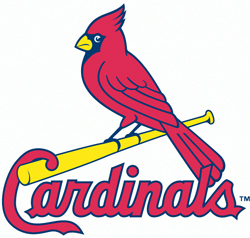 When city taxpayers gave the St. Louis Cardinals tax breaks for building the new Busch Stadium, a provision gave St. Louis a share of any profits arising from any sale of the team. Since then about 13 percent of minority shares have been sold, but the city has seen no revenue from the transactions — and some residents are asking why.
When city taxpayers gave the St. Louis Cardinals tax breaks for building the new Busch Stadium, a provision gave St. Louis a share of any profits arising from any sale of the team. Since then about 13 percent of minority shares have been sold, but the city has seen no revenue from the transactions — and some residents are asking why.
The terms of the deal are crystal clear: though the Cardinals built Busch Stadium on their own dime, they did receive a series of tax breaks that made the whole venture doable. In return, the Cards pledged certain things. Among them: 100,000 free tickets for city residents, 486,000 seats priced under $12, and $100,000 in donations to recreation for disadvantaged youths.
And a pledge to share any profits if any part of the team was sold, via a “Operations and Non-relocation Agreement.” It was a pretty simple agreement: the Cards were valued at $180 million (remember, this was in 2002). Any shares that sold above that valuation would require the team to give the city 8 percent of the profits, a percentage that goes down annually. It was designed to prevent the Cardinals owners from realizing a huge profit via an expanded worth of the team enabled by the new ballpark.
The clause wasn’t an issue until last year, when 13 percent of the team was sold. That led some local residents to question whether the Cards had lived up to their end of the agreement. Since there’s no enforcement clause, the city was not keeping track of whether the Cards were fulfilling the terms of the deal. After an inquiry from the St. Louis Post-Dispatch, the team supplied a spreadsheet showing the number of free tickets, the number of reduced-price tickets and donations. In each instance, the Cards exceeded the terms of the contract.
The team also laid out minority sales of the team in affadavits supplied to the city, totalling more than 13 percent of the team since 2005.
The Cards declined to make the specific transaction information public, saying that any sale prices was based on the 2002 valuation of the team — $180 million — and not on any current valuations (). If there were no profits from these sales, then there’s no money owed to the city. And it’s certainly true that minority ownership isn’t always treated the same financially as a majority share: just because you own 3 percent of a corporation doesn’t mean you own 3 percent of the voting rights in the corporation. Someone buying 1 percent of an MLB franchise doesn’t necessarily do it for a financial return: many do it because they want to say they own part of a MLB team.
This probably won’t end up being a legal issue for the Cardinals, but it could end up being a public-relations problem. On the one hand, there’s no enforcement mechanism in the contract, and when asked the Cards ponied up information. On the other hand, to an outsider it would seem incredible that chunks of ownership are being sold at the same valuation today as in 2002. So some more community education may be in order.
Share your news with the baseball community. Send it to us at editors@augustpublications.com.
Subscribers to the weekly Ballpark Digest newsletter see features before they’re posted to the site. You can sign up for a free subscription at the Newsletter Signup Page.
Join Ballpark Digest on Facebook and on Twitter!
